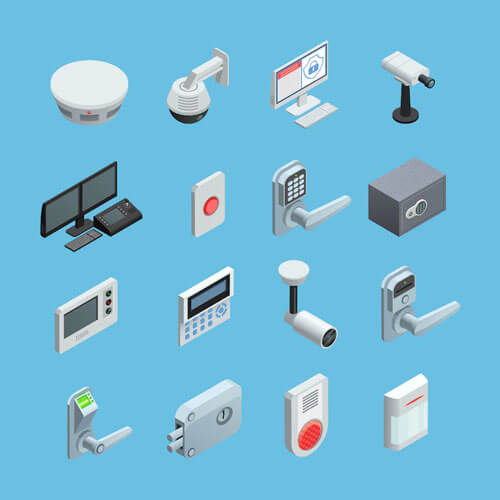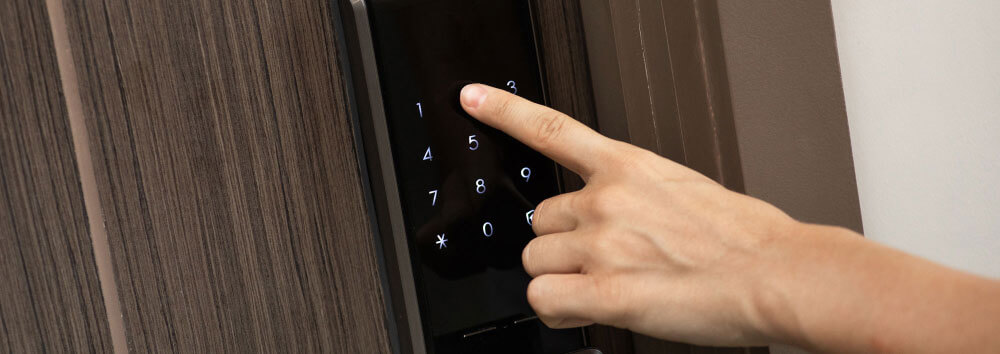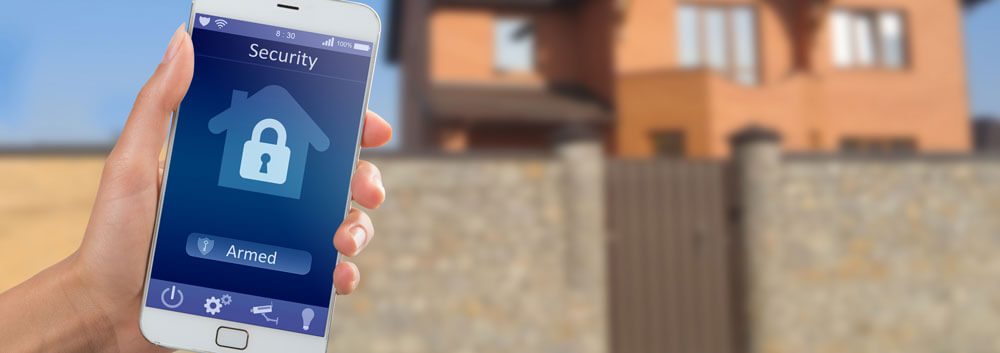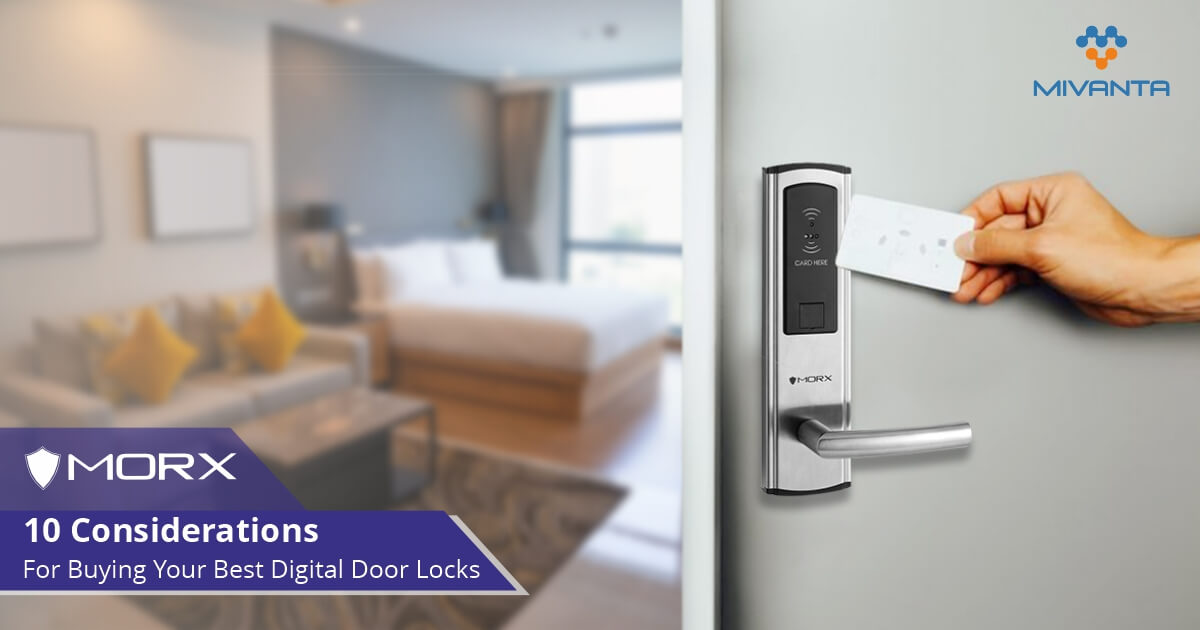A Curated List For Choosing Digital Door Locks
Digital door locks are the first line of defence against potential intruders, acting as the gatekeepers in modern facilities or home doors. Your doors must be secure 24x7, from the office building to your condo unit. A perfect door lock mechanism for specific applications will keep unwanted visitors out and retain the ones you want inside. There are numerous types of door locks on the market, each with unique pros and cons. Whether you have a standard hinged wooden door or a more advanced sliding glass entryway, there is an ideal lock for every situation. Here are ten points you should consider when choosing your perfect door lock.
A Curated List For Choosing Digital Door Lock
These ten key points will help you in the selection of digital door locks or the upgrade of an existing system. Without a doubt, digital door locks have numerous advantages. We have compiled only the most important factors to consider when choosing one.
1. Unlock mechanism
Digital doors can unlock through different mechanisms. The mechanism you must choose depends on the application, environment, convenience, mode of access, and more. The following are the most common unlock mechanisms:
PIN/Password: A combination of characters or digits that are entered on the keypad in the lock to acquire access. This mechanism is used comparatively in low throughput applications like home doors, cabin doors, etc.

RFID/smart card: In which the door lock is an RFID reader that only allows access if it receives an authorized signal from the RFID tags that users carry. The RFID tag can share information about people who enter the premises—typically used in enterprise access control applications.
Biometric access: Access control mechanism that offers high security for all. It reads biometric traits of people to authenticate them, such as fingerprints, faces, and iris. The fingerprint scanners are touch scanners, while the face and iris recognition are contactless identifying mechanisms. These locks are suitable for high-security and large throughput applications.
Web-based devices: Control the flow of access and monitor employee time attendance via a web server from anywhere at any time.
2. Standards
According to the American National Standards Institute (ANSI), three door lock standards exist. That is:
Grade 1: Highest secured lock commonly used in highly secured facilities and commercial applications.
Grade 2: Used for residential doors and individual cabin doors. Most commonly found in real-life.
Grade 3: Basic, least expensive, and low-security category.
3. Technology:
A door lock is no longer just a locking system; it is also a smart device that can do more than a standard lock. It can carry out attendance tracking, visitor management, tracking, other functionalities that a smart device can do, etc.
4. Handle-free access

Hand locks are unquestionably useful in applications such as home doors, high-security safes, and rooms. However, a handle-free door lock will look and feel elegant in many applications while also being convenient in high-throughput applications.
5. Connectivity
As previously stated, digital locks are no longer just locks but smart devices. These devices must meet minimum connectivity requirements for multiple capabilities such as attendance tracking, access control, data analysis, and real-time updating. Consider Mivanta products, which provide a wide range of devices with a wide range of connectivity options. Connectivity options include ethernet, Bluetooth, NFC, USB, TCP IP, Wifi, etc.
6. Remote access for unlocking

Remote access is of various types; wifi, RFID, NFC, and Bluetooth are enough to control the lock with the premises or room. But for long-range remote access, you must require web-based devices.
Check out the HTTP server-based locks: click here.
7. Type of entrance
Doors can be wooden, metal, fibre, or glass. You must choose the weight, size, and shape of the lock accordingly so that it easily be mounted. Depending on the size, material, and door thickness, you can choose a range of locks.
8. Brand
Brand value is not only about supplying quality products but also offering good post-sale services and any-time assistance. Better prefer a brand that provides a complete security solution for the entire premise rather than just buying and installing locks.
9. Power
To avoid problems during the power outage, you have to check the emergency battery backup of your lock. If power is an issue, you can choose a lock with a standard key cylinder as a backup.
10. Customization
Last but not least, the most valuable feature of digital door locks is customization. Smart locks with customizable access and security modes are ideal for various applications. This means you can set a code for a specific time for an event and then cancel it later to return to normal mode. You may also need to customize access for various layers of employees, relatives, gardeners, housekeeping staff, etc.
Conclusion
We are always concerned with providing the best security for your home and office. To do that, you must ensure you have a great lock. We hope this article has helped you find the information you need to choose your best digital door lock. To learn more about locks, we encourage you to browse through webpages: Mivanta.

